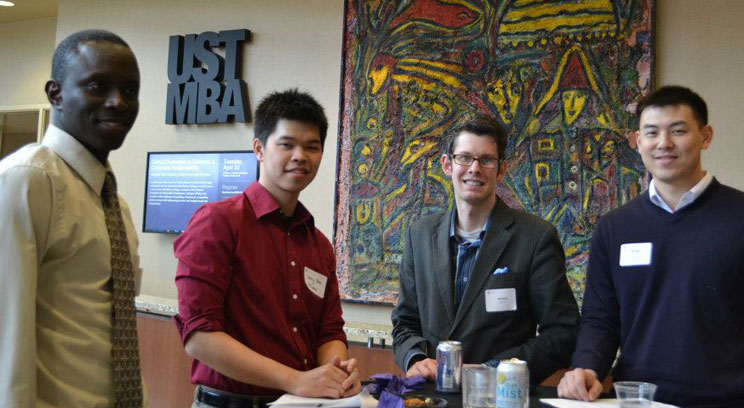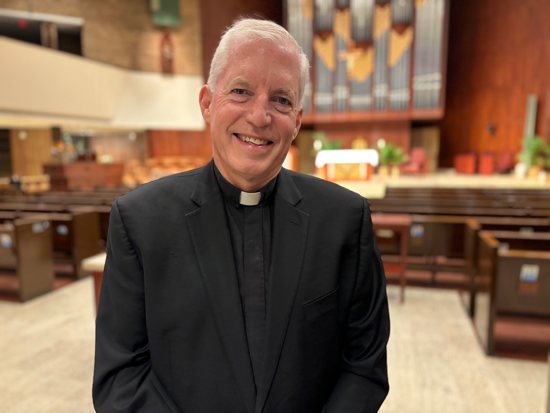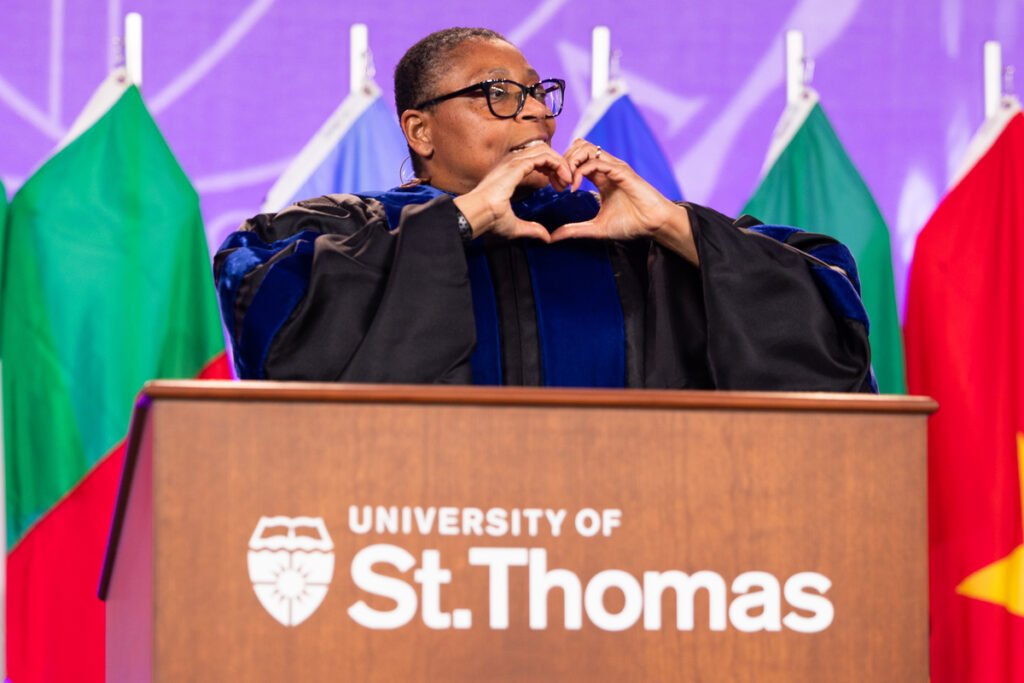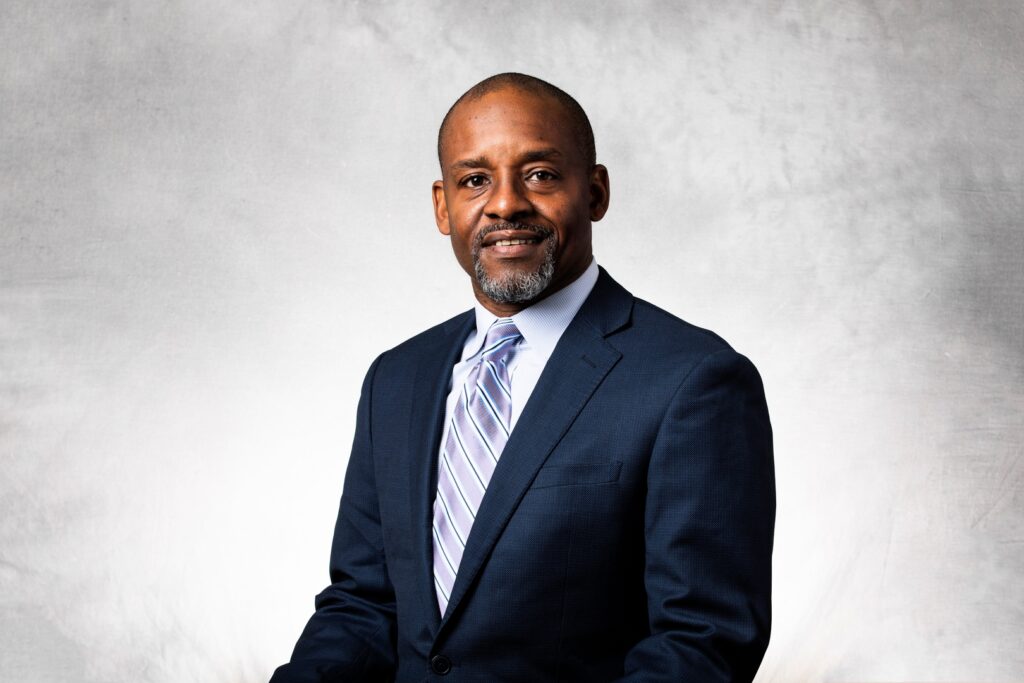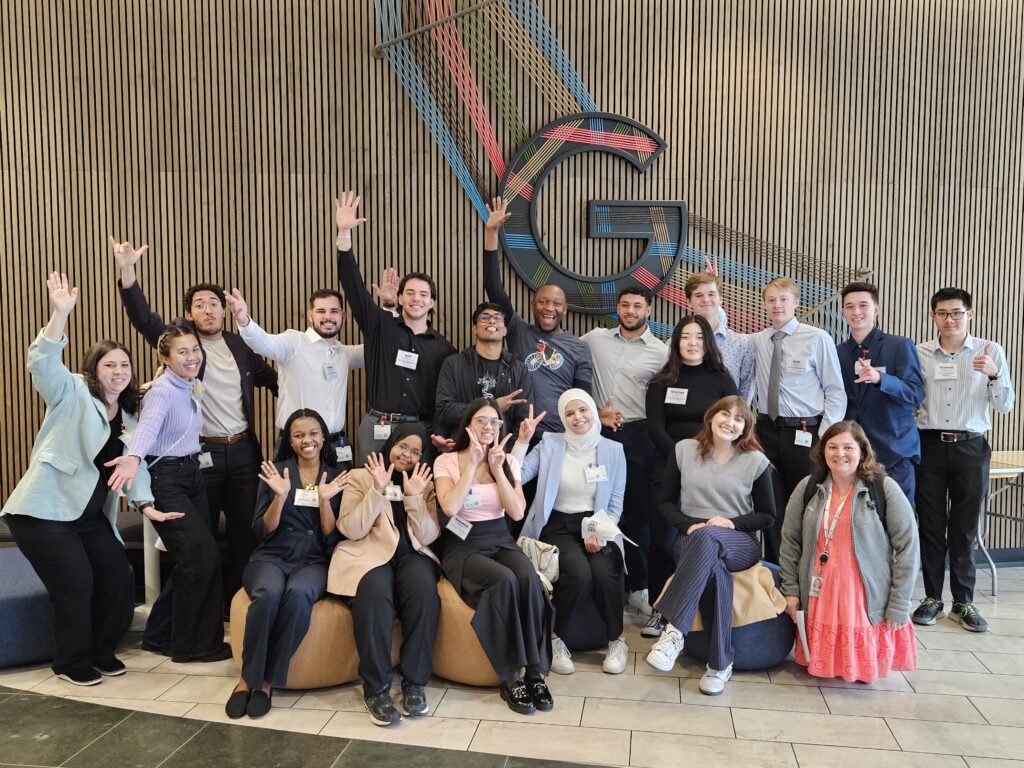How does one successfully navigate the process of moving from an individual contributor or team member to a first-time manager and leader? Which leadership characteristics and competencies promote positive and authentic leadership and which practices or attitudes can detract from an individual’s leadership potential? Moreover, how does one learn or develop leadership capabilities?
Last month, I had the pleasure of attending the first National Association of Asian MBAs (NAAMBA) event hosted on the University of St. Thomas Minneapolis campus in the Opus College of Business Schulze Auditorium. The event focused on topic that resonated with all attendees, is consistently on the minds of business professionals, and is interwoven throughout the UST MBA program (and many other MBA programs’) curriculum: leadership.
To spark the discussion, NAAMBA-Twin Cities invited Robert C. Barnett, adjunct faculty member in UST's Organizational Learning and Development department and principal and senior fellow in management consulting at Robert Barnett Consulting, LLC and MDA Leadership Consulting, to share his extensive research and findings about leadership.
Barnett educated the audience about the history of leadership theory, which was initially trait-focused (leadership is inherent in certain individuals; leaders are born, not made) and over many decades has moved to a developmental model (leadership is promoted by developing and practicing key competencies, critical reflection, and insight-building) - good news for all of us!
I found it fascinating that given the countless leadership theories across decades, several common themes persisted. Namely, the importance of challenging oneself to develop organizational skills, business skills (such as motivating, delegating, and decision-making), and both interpersonal and intrapersonal skills.
Many times, aspiring leaders leave intrapersonal skill development last on their to-do list - with heavy workloads and balancing home, friends, job, and family, who has an abundance of extra time to critically examine professional growth, experiences, mistakes, role models, strengths, weaknesses, and individual goals regularly? Likely, very few… but that is where the risk lies. Barnett enlightened us of the fact that successful leaders and leadership capabilities develop primarily through making meaning of one’s experiences. This means that unless we carve out time to reflect on our mistakes, gain insight from both good and bad professional experiences or assignments, and work on self-awareness and challenging ourselves with new, unfamiliar experiences, transitioning to a leadership role will become much more difficult. In fact, Barnett emphasized that leadership derailment, or “early stalled (or ended) career advancement in otherwise successful and promotable leaders” often happens due to individuals’ “significant flaws in themselves…inability to learn from mistakes…failure to take a broad view, lack of reliability, follow-through, or accountability...”
The night ended with an extremely open and insightful panel of five Asian business professionals working at top Minnesota companies such as Target, United Healthcare, Best Buy, Abbott Northwestern, and Chamilia, who offered their views about leadership in the workplace. Two panelists completed the Health Care UST MBA program and the Executive UST MBA program, a third panelist was a current student in the Evening UST MBA program, and all are putting their MBAs to work in their newly earned leadership positions. These individuals offered many insightful tips for enhancing one’s leadership potential, skills, and positioning in an organization. I found a few comments particularly interesting and helpful, especially given the backdrop of Robert Barnett’s presentation about leadership theory and development earlier in the evening. The first was “lean into discomfort.” Although new assignments and responsibilities can be unfamiliar and anxiety-producing, it is important to recognize that the discomfort means that you are part of a new, growth-building experience. These experiences can round out your skill set and make you a more marketable leader, and re-framing the way we approach these challenges can certainly enhance adaptability.
Second, several panelists highlighted the importance of feedback, tying back to the importance of inter and intra-personal skills Barnett addressed in his presentation. “If you don’t get feedback on a regular basis from your colleagues, team, or supervisor… ask for it,” offered the panelists. Feedback helps individuals to learn from experiences, and as Barnett highlighted, the majority of leadership competency-building happens from learning from real-life, on-the-job experiences (regardless of whether they are successes or failures).
Finally, the panel addressed racial and gender stereotypes and how they can advance or de-rail one’s leadership development or potential to access leadership competency-building opportunities. Although may be difficult to change others’ perceptions based on one’s outward appearance or culture, the best advice the panel offered in terms of professional leadership was simple and effective: be authentic, and true to yourself and your culture, do good work, and continue to be intellectually curious. As all attendees learned that evening, leadership development requires continuous learning, synthesis and reflection, and seeking out challenge. NAAMBA-Twin Cities and the University of St. Thomas MBA programs are indeed dedicated to supporting such continuous learning, and developing leaders who are engaged members of their workplace and cultural communities.
